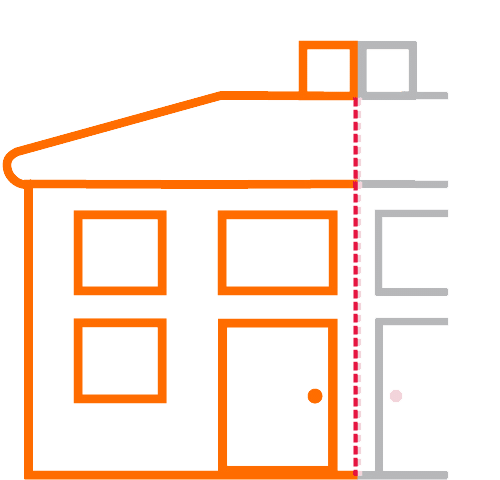Sustainable Practices in Insulation for Environmental Conservation
Insulation plays a crucial role in promoting energy efficiency and environmental preservation. By employing sustainable practices in insulation, we can significantly reduce our carbon footprint and contribute to the protection of the planet. Opting for eco-friendly insulation materials such as recycled cellulose or wool not only ensures efficient energy consumption but also minimizes the negative impact on the environment during manufacturing and disposal processes.
In addition to selecting environmentally friendly materials, professional installation is vital for achieving optimal insulation performance. Proper installation techniques, carried out by experienced professionals, guarantee long-term results and maximise the energy-saving benefits of insulation. By investing in expert installation, homeowners can enhance the efficiency of their homes while reducing energy wastage and greenhouse gas emissions.
Choosing EcoFriendly Insulation Materials
When selecting insulation materials for your property, opting for eco-friendly options can significantly reduce your carbon footprint whilst also improving the energy efficiency of your home or building. Sustainable insulation materials, such as cellulose, wool, and recycled denim, offer excellent thermal performance without causing harm to the environment. These eco-friendly choices not only provide effective insulation but also contribute towards creating healthier indoor spaces free from harmful chemicals commonly found in traditional insulation products. Making the conscious decision to use environmentally friendly insulation materials is a positive step towards reducing energy consumption and embracing sustainable practices in construction and renovation projects.
Importance of Professional Installation for Optimal Insulation Performance
Professional installation of insulation plays a crucial role in achieving optimal performance and energy efficiency in buildings. While some homeowners may attempt a DIY approach, the expertise of trained professionals ensures that the insulation is correctly installed to deliver maximum benefits. Professionals have the knowledge and experience to assess the specific needs of a property and select the most suitable insulation materials for long-lasting results.
Moreover, professional installers adhere to industry standards and best practices, guaranteeing that the insulation is placed securely and effectively to prevent any gaps or air leaks. This meticulous attention to detail not only enhances the overall insulation performance but also contributes to reducing energy consumption and lowering utility bills. By entrusting the installation to professionals, property owners can rest assured that their insulation will function optimally, providing a comfortable indoor environment while minimising energy wastage.
Ensuring Proper Installation Techniques for LongTerm Results
Proper installation techniques play a pivotal role in guaranteeing long-term efficiency and effectiveness of insulation within a property. When insulation is incorrectly installed, whether through gaps, compression, or inadequate coverage, its ability to regulate temperature and conserve energy diminishes significantly. To ensure that your insulation system functions optimally, it is vital to employ the expertise of professionals who possess the knowledge and skills required to install insulation correctly.
Professional installers have the capability to assess the specific requirements of a building and select the most suitable insulation materials accordingly. Moreover, their proficiency in executing proper installation techniques, such as air sealing, moisture control, and thermal bridging prevention, can prevent potential issues in the long run. By adhering to these precise methods during installation, individuals can maximise the longevity and energy-saving potential of their insulation system, contributing to sustainable energy practices and environmental conservation.
Insulation Maintenance Tips for Prolonged Energy Efficiency
Insulation maintenance is crucial for ensuring prolonged energy efficiency in buildings. Regular upkeep of insulation not only helps in conserving energy but also contributes to the longevity of the insulation material. One key tip for maintaining insulation is to conduct periodic inspections to check for any signs of wear and tear, such as gaps, tears, or air leaks, which can compromise its effectiveness.
In addition to visual inspections, homeowners should also pay attention to any changes in temperature regulation within the building, as this could indicate a problem with the insulation. It is recommended to address any issues promptly to prevent energy wastage and maintain optimal performance. By incorporating these maintenance practices into regular routines, individuals can maximise the energy-saving benefits of insulation and promote a sustainable living environment.
Preserving Insulation Quality through Regular Maintenance
Regular maintenance is essential to uphold the quality and effectiveness of insulation within a property. By implementing a routine schedule for inspection and upkeep, homeowners can ensure that their insulation continues to function optimally, thus contributing to prolonged energy efficiency. Missing out on regular checks may lead to unnoticed issues that can compromise the insulation’s performance and result in unnecessary energy loss.
Assessing the condition of insulation periodically allows for timely rectification of any problems that may arise, such as moisture seepage or wear and tear. It is advisable to engage a professional to conduct thorough inspections and maintenance tasks, as they possess the expertise to identify and address any issues efficiently. By committing to regular maintenance practices, individuals can uphold the quality of their insulation and reap the long-term benefits of sustained energy conservation within their living spaces.
FAQS
Table of Contents
ToggleHow does adequate insulation contribute to energy conservation?
Adequate insulation helps in reducing heat transfer, keeping the indoor temperature stable and reducing the need for constant heating or cooling, thus saving energy.
What are some sustainable practices in insulation for environmental conservation?
Using eco-friendly insulation materials like recycled fibres, cellulose, or natural wool can help in reducing the environmental impact of insulation practices.
Why is professional installation important for optimal insulation performance?
Professional installers have the expertise to ensure proper placement and sealing of insulation materials, which is essential for maximum energy efficiency.
How can I ensure long-term results with insulation installation?
By following proper installation techniques such as sealing gaps, using the right amount of insulation, and preventing moisture buildup, you can ensure long-term effectiveness of insulation.
What are some insulation maintenance tips for prolonged energy efficiency?
Regularly inspecting insulation for signs of damage, pests, or moisture, and promptly addressing any issues can help in maintaining the energy efficiency of your home over time.
Related Links
Understanding the Role of Proper Insulation in Energy Efficiency
The Relationship Between Proper Insulation and Energy Conservation





